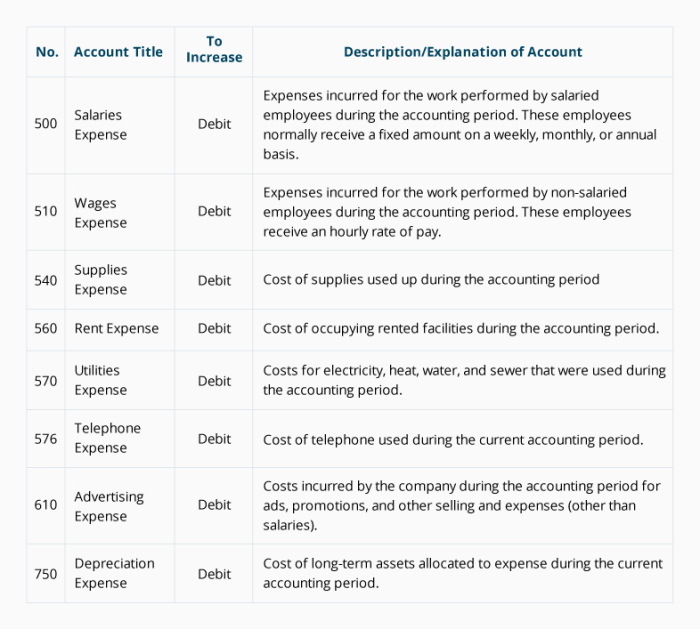Di era globalisasi saat ini, kemampuan berbahasa Inggris menjadi aset penting, terutama dalam dunia bisnis. Memahami istilah bisnis dalam bahasa inggris membuka pintu menuju peluang karier yang lebih luas dan kesempatan untuk bersaing di pasar internasional. Bayangkan, Anda bisa dengan mudah memahami presentasi bisnis, bernegosiasi dengan klien asing, dan membaca laporan keuangan perusahaan global. Menguasai istilah bisnis dalam bahasa Inggris membuat Anda lebih percaya diri dalam berkarir, meningkatkan peluang promosi, dan menapaki tangga kesuksesan yang lebih tinggi.
Untuk memulai perjalanan ini, kita akan membahas pengertian istilah bisnis dalam bahasa Inggris, kategori, manfaat, sumber belajar, dan tips untuk menguasainya. Siap untuk membuka cakrawala baru dalam dunia bisnis?
Understanding Business Terminology in English: Istilah Bisnis Dalam Bahasa Inggris
The world of business is a complex and dynamic landscape, and understanding its terminology is crucial for anyone who wants to navigate it successfully. Whether you’re a budding entrepreneur, a seasoned professional, or simply someone interested in the business world, having a solid grasp of business terms in English can give you a significant advantage. This article will delve into the intricacies of business terminology, exploring its definition, categories, importance, learning resources, and effective tips for mastering it.
Defining Business Terminology in English
 bahasa inggris” title=”Vocabulary business words list common used english meaning important infographic” />
bahasa inggris” title=”Vocabulary business words list common used english meaning important infographic” />
Business terminology refers to the specialized vocabulary used in the context of business activities, encompassing various aspects such as finance, marketing, management, and more. These terms are often technical and specific to the business world, making it essential to understand their meanings to effectively communicate and participate in business discussions.
Examples of Business Terminology
- Revenue: The total income generated by a company from its operations.
- Profit: The amount of money a company earns after deducting its expenses from its revenue.
- Marketing: The process of promoting and selling products or services to target customers.
- Management: The process of planning, organizing, directing, and controlling resources to achieve organizational goals.
- Investment: The act of committing money or resources to an asset with the expectation of generating future income or profits.
Table of Business Terminology
Term | Definition |
|---|---|
Revenue | The total income generated by a company from its operations. |
Profit | The amount of money a company earns after deducting its expenses from its revenue. |
Marketing | The process of promoting and selling products or services to target customers. |
Management | The process of planning, organizing, directing, and controlling resources to achieve organizational goals. |
Investment | The act of committing money or resources to an asset with the expectation of generating future income or profits. |
Market Share | The percentage of a market’s total sales that a particular company or product controls. |
Brand | A name, term, design, symbol, or other feature that identifies a seller’s goods or services and differentiates them from those of competitors. |
Supply Chain | The network of organizations and resources involved in the production and distribution of a product or service. |
Human Resources | The department within an organization responsible for managing employee-related matters. |
Financial Statements | Formal documents that summarize a company’s financial performance and position. |
Categories of Business Terminology
Business terminology can be broadly categorized into three main areas: finance, marketing, and management. Each category encompasses a wide range of terms specific to its respective field.
Finance
- Assets: Resources owned by a company that have economic value.
- Liabilities: Financial obligations that a company owes to others.
- Equity: The value of a company’s assets minus its liabilities.
- Cash Flow: The movement of cash into and out of a company.
- Return on Investment (ROI): A measure of the profitability of an investment.
Marketing
- Target Audience: The specific group of people that a marketing campaign is aimed at.
- Brand Positioning: How a company wants its brand to be perceived by customers.
- Marketing Strategy: A plan for achieving marketing objectives.
- Customer Relationship Management (CRM): A system for managing interactions with customers.
- Social Media Marketing: Using social media platforms to promote products or services.
Management
- Leadership: The ability to inspire and motivate others to achieve goals.
- Delegation: Assigning tasks to others.
- Decision Making: The process of selecting a course of action from among alternatives.
- Strategic Planning: Developing long-term goals and strategies for achieving them.
- Organizational Culture: The shared values, beliefs, and behaviors of an organization.
Table of Business Terminology Categories
Category | Examples |
|---|---|
Finance | Assets, Liabilities, Equity, Cash Flow, Return on Investment (ROI) |
Marketing | Target Audience, Brand Positioning, Marketing Strategy, Customer Relationship Management (CRM), Social Media Marketing |
Management | Leadership, Delegation, Decision Making, Strategic Planning, Organizational Culture |
The Importance of Understanding Business Terminology
Having a solid grasp of business terminology in English is crucial for several reasons. It allows for effective communication, enhances professional credibility, and opens up opportunities for career advancement.
Benefits of Understanding Business Terminology
- Effective Communication: Being able to understand and use business terms accurately allows for clear and concise communication in business settings, ensuring that everyone is on the same page.
- Professional Credibility: Demonstrating a strong understanding of business terminology builds trust and confidence among colleagues, clients, and potential employers, enhancing your professional credibility.
- Career Advancement: In today’s competitive job market, having a strong grasp of business terminology is essential for career advancement. It allows you to confidently participate in meetings, presentations, and negotiations, showcasing your knowledge and skills.
Example of Business Terminology in Action
Imagine you’re attending a meeting where the CEO is discussing the company’s financial performance. They mention that the company’s “revenue” has increased significantly, but its “profit” margin has remained relatively low. Understanding these terms allows you to follow the discussion and contribute meaningfully, demonstrating your knowledge and expertise.
Table of Benefits of Understanding Business Terminology
Benefit | Example |
|---|---|
Effective Communication | Being able to understand and use terms like “revenue” and “profit” allows for clear communication during a financial performance review. |
Professional Credibility | Using business terms accurately during a client presentation demonstrates your expertise and builds trust. |
Career Advancement | Having a strong grasp of business terminology is essential for confidently participating in job interviews and showcasing your skills. |
Learning Resources for Business Terminology
There are various resources available for learning and expanding your knowledge of business terminology in English. These resources can cater to different learning styles and preferences, providing flexibility and convenience.
Resources for Learning Business Terminology
- Online Business Dictionaries: Websites like BusinessDictionary.com and Investopedia provide comprehensive definitions of business terms, along with examples and explanations.
- Business Books and Articles: Numerous books and articles focus on specific business areas, such as finance, marketing, or management, offering detailed explanations of related terminology.
- Online Courses and Programs: Platforms like Coursera and edX offer online courses and programs on business topics, providing a structured learning experience with interactive exercises and assessments.
Table of Learning Resources for Business Terminology
Resource | Advantages | Disadvantages |
|---|---|---|
Online Business Dictionaries | Free and readily accessible, providing quick definitions and examples. | May not offer comprehensive explanations or context. |
Business Books and Articles | Provide in-depth explanations and real-world examples. | Can be time-consuming to read and may not be suitable for everyone. |
Online Courses and Programs | Offer structured learning experiences with interactive exercises and assessments. | May require a fee and may not be readily available to everyone. |
Tips for Learning Business Terminology, Istilah bisnis dalam bahasa inggris
Learning business terminology effectively requires a strategic approach. Here are some tips to help you master the language of business.
Tips for Learning Business Terminology
- Start with the Basics: Begin by focusing on fundamental business terms that are commonly used across different industries. This will provide a solid foundation for understanding more complex terminology.
- Use Flashcards: Create flashcards with business terms on one side and their definitions on the other. Regularly reviewing these flashcards can help you memorize terms and their meanings.
- Practice in Context: Instead of simply memorizing definitions, try to understand how business terms are used in real-world situations. Read business articles, watch business news, and participate in online discussions to see how these terms are applied.
- Use a Business Dictionary: Keep a business dictionary handy and refer to it whenever you encounter an unfamiliar term. This will help you quickly understand its meaning and context.
- Be Patient and Consistent: Learning business terminology takes time and effort. Be patient with yourself and consistent in your efforts. Over time, you will gradually expand your vocabulary and become more comfortable using business terms.
Table of Tips for Learning Business Terminology
Tip | Explanation |
|---|---|
Start with the Basics | Focus on fundamental business terms to build a strong foundation. |
Use Flashcards | Create flashcards to memorize terms and their definitions. |
Practice in Context | Understand how business terms are used in real-world situations. |
Use a Business Dictionary | Refer to a business dictionary for quick definitions and context. |
Be Patient and Consistent | Learning business terminology takes time and effort, so be patient and consistent in your efforts. |






Kuasai Istilah Bisnis dalam Bahasa Inggris